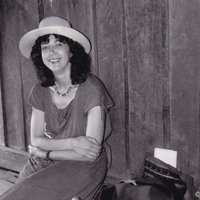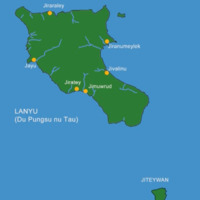Paroles de Si-Rapongan, chants anood et raod de Sian-Parokso et Siapen-Kotan Do-Rarahan, chant raod du tonnerre et des vagues, chant des poissons volants de Siapen-kotan Do-Seyli et autres chants de pêche et de navigation.
Item
- Edited Title
- Archivist's Original Title
- Original description
- Time duration
- Recording date of the original material
- Acquisition Date
- Population
- Place of the cultural origin
- Country Name
- Recording place
- Resource Language
- Comment
- Archivist Category
- Recording context
- Collector
- Name of original Collection
- Collection source citation
- Related material
- History of ownership
- Holding Institution of Original Materials
- Licensing Institution
- Accessing Institutions
- Copyright Information
- Copyright Notice
- Physical format
- Preservation State of Physical Object
- Original item number
- SEAH Identifier
-
en
Ciring ni-Rapongan - anood nian-Parokso - raod nian-Parokso - anood kano raod niapen-Kotan Do -Rarahan - anood niapen-Kotan Do-Seyli
-
fr
Paroles de Si-Rapongan, chants anood et raod de Sian-Parokso et Siapen-Kotan Do-Rarahan, chant raod du tonnerre et des vagues, chant des poissons volants de Siapen-kotan Do-Seyli et autres chants de pêche et de navigation.
-
en
Lyrics of Si-Rapongan, anood and raod songs of Sian-Parokso and Siapen-Kotan Do-Rarahan, raod song of thunder and waves, flying fish song of Siapen-kotan Do-Seyli and other fishing and navigation songs.
-
en
Field recordings collected in Lan Yu Island (Taïwan), Yami population, by V. Arnaud in 1975.
-
en
01:06:26
-
en
1975-09-15
-
en
2012
-
en
Yami
-
en
Jiraraley villages; Lan Yu Island
-
en
Yami (Tao)
-
en
InCopyright and/or related rights. URI: https://rightsstatements.org/page/InC/1.0/
For more information on the rights, please see the corpus record : https://archives.crem-cnrs.fr/archives/corpus/CNRSMH_Arnaud_001/
-
fr
Septembre, c'est "le temps de sortie (des morts errants, anito) (paropotoen) et la fin de saison de pêche des poissons migrateurs (teyteyka): une période de mauvais temps et de hautes vagues.
Les hommes sont contraints de rester à terre, ils pêchent à la ligne ou à l'épervier du rivage et se retrouvent le soir dans leurs maisons pour chanter.
Le 15 Septembre 1975, deux hommes se retrouvent ainsi dans la soirée : Sian-Parokso (Père-de-Petit-et-Noir), compositeur fécond de chants raod et anood auquel répond Siapen-kotan Do-Nyoy (Arrière-grand-père Du-Village), grand spécialiste de "chants des poissons volants" (anood no libangbang).
-
en
September is "the time of exit (of the wandering dead, anito) (paropotoen) and the end of the fishing season for migratory fish (teyteyka): a period of bad weather and high waves. Men are forced to stay on land, they fish with a line or cast net from the shore and meet in the evening in their houses to sing. On September 15, 1975, two men met like this in the evening: Sian-Parokso (Father-of-Little- et-Noir), fertile composer of raod and anood songs to which Siapen-kotan Do-Nyoy (Great-grandfather Du-Village), a great specialist in “songs of flying fish” (anood no libangbang), responds.
-
en
Music and spoken voice
-
en
Field recording
-
en
Taiwan (Lan Yu), population Yami (actuels Tao), V. Arnaud expedition, 1975.
-
en
Recordings digitized by R. Saint Estève, archived at CREM (CNRS) between 2012 and 2020, indexation and annotation by V. Arnaud.
-
In Copyright. Non-Commercial Use Permitted
-
For any use, please contact the CREM-LESC (CNRS, Nanterre University, France): crem.lesc[at]cnrs.fr ; See information at https://archives.crem-cnrs.fr
-
en
Magnetic tape
-
en
UHER magnétophone
-
en
CNRSMH_I_2013_012_001_001
-
en
SEAH_CNRSMH_I_2013_012_001_001
- Media
 [Untitled]
[Untitled]



